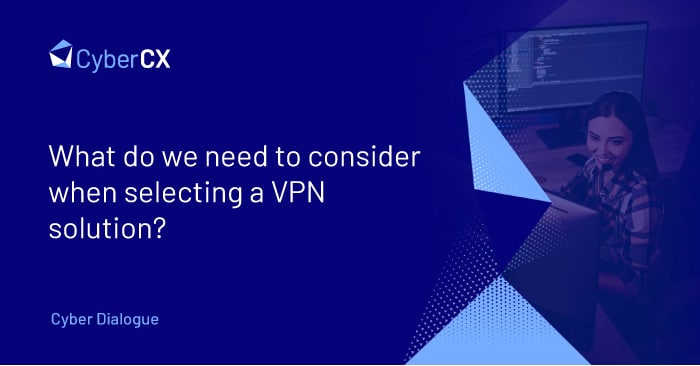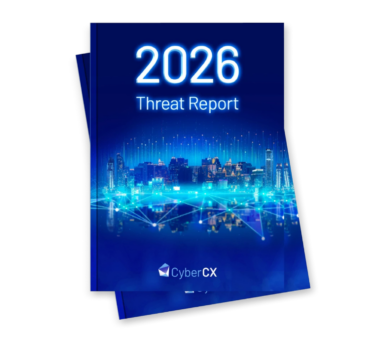What do we need to consider when selecting a VPN solution?

 |
Answered by Mark Hofman, Chief Technology Officer, CyberCX |
Virtual Private Networks or VPNs have become increasingly popular. This popularity has mostly been driven by people wishing to access geographically-restricted streaming content from other countries. However, there are also important cyber security imperatives driving their increased popularity.
A VPN establishes a tunnel between a device, such as a computer or mobile device, and a server. Rather than data simply being sent over the public internet, a VPN offers an additional layer of protection for data flowing between the device and the server.
When setting your staff up with VPNs, there are some important considerations.
You need to ensure you have enough licenses for all your staff. It’s is also important to make sure you have sufficient inbound and outbound bandwidth to cope with traffic if all your staff are accessing your organisation’s network using the VPN. You may consider establishing windows, or periods of time, when certain staff members access the network, so it isn’t overloaded.
Bear in mind that certain admin controls may be restricted when using VPNs. For example, if staff need to update their passwords periodically, they may not be able to do this if using a VPN. It’s important to check this and, in particular, to ensure your IT team have the admin access they need to perform their duties.
Whilst VPNs do offer enhanced security, it would be preferable if most work could be conducted through the use of secure cloud-based systems, rather than on-premises technology. Moving to cloud-based systems with multi-factor authentication can offer greater convenience and security.
As for the specific technologies to use, an SSL/TLS VPN solution will offer more flexibility and can be easier to deploy. Often, specific applications can be published or whole desktops. This will allow you to control the security of the platform and can make management much simpler. The more traditional IPsec VPNs will have a client that needs to be preinstalled. These types of VPNs can be slightly faster but tend to be less flexible.
View our 5 easy steps to improve your cyber resilience.






